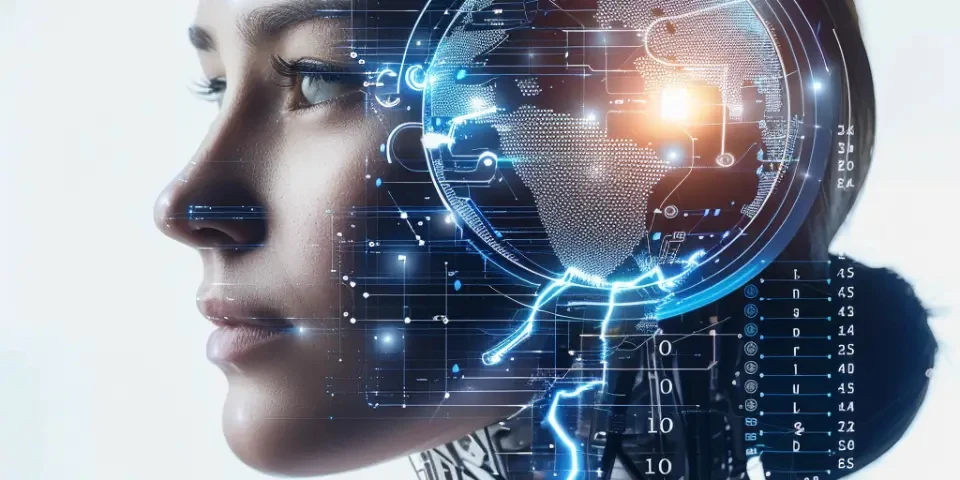Personalized Poetry at Your Fingertips How AI is Redefining the Poetic Experience
Artificial Intelligence (AI) has revolutionized various industries, and the realm of poetry is no exception. Gone are the days when poetry was limited to the words and emotions of human poets alone. Today, AI-driven tools and platforms have made personalized poetry accessible to anyone with a smartphone or computer. This article explores how AI is redefining the poetic experience and discusses the implications of this innovation.
A Creative Partnership
AI-powered poetry tools have ushered in a new era of collaboration between humans and machines. These tools analyze vast amounts of data to derive patterns, structures, and styles that can be utilized in creating personalized poetry. By collaborating with AI, users can tap into a wealth of creative possibilities, blending their unique emotions and thoughts with the computational power of the machine.

Additionally, AI offers inspiration and guidance. It can generate writing prompts, suggest rhymes, analyze meter and rhythm, and offer alternative word choices to enhance the poetic impact. This collaboration enables individuals to explore their creative potential and access a level of poetic expression that may have been otherwise unattainable.
A common concern is whether the use of AI diminishes the authenticity of poetry. However, it is important to remember that AI is merely a tool, and it is ultimately the human touch that adds depth and meaning to the poetic composition.
Personalized Poetic Expression
AI allows for highly personalized poetic experiences by tailoring compositions to individual preferences. By analyzing the user's writing style, favorite poems, and even social media posts, AI-driven software can generate poetry that resonates with the user on a deeper level. The result is a unique collection of verses that capture the essence of one's emotions and thoughts.
This personalized approach to poetry not only provides a means for self-expression but can also serve as a therapeutic tool. The process of creating and reading personalized poetry can help individuals gain insights into their own emotions, offer comfort during challenging times, and provide a medium for self-reflection and growth.
A Venue for Experimentation
AI-driven poetry platforms empower individuals to experiment with various styles and genres, pushing the boundaries of traditional poetic forms. These tools offer features such as altering line structures, generating experimental metaphors, and even incorporating multimedia elements like images and audio. Users can explore avant-garde poetry, fusion of different languages, or completely novel approaches to verse construction.
Such experimentation not only fuels creativity but also contributes to the evolution of poetic expression as an art form. As AI continues to advance, it may even facilitate the creation of entirely new poetic forms that defy conventional definitions.
Preserving Cultural Heritage
AI technologies play a crucial role in preserving and reviving cultural heritage through poetry. By analyzing vast libraries of historical poems and literature, AI algorithms can identify and learn the nuances of different poetic traditions, styles, and influences. This knowledge can then be used to generate new poetry that remains faithful to the essence of the respective cultural heritage.
Furthermore, AI-powered translation tools aid in overcoming language barriers, bringing poems from different cultures and languages closer to a global audience. In this way, AI not only helps preserve cultural diversity but also fosters a deeper appreciation for the richness of global poetic traditions.
The Limitations of AI in Poetry
While AI undoubtedly enhances the poetic experience, it is important to acknowledge its limitations. AI-generated poetry lacks the lived experiences, emotions, and subjective perspectives that human poets bring to their work. It may excel in generating technically proficient verse, but it may struggle to evoke the profound emotional impact that a human poet can achieve.
Additionally, AI algorithms rely heavily on existing data, which can lead to biases or limitations in the generated poems. This can restrict the exploration of new ideas and perspectives, reinforcing existing stereotypes or tropes. Users must approach AI-generated poetry with criticality, understanding that it is a tool that should be used in conjunction with human creativity and discernment.
Frequently Asked Questions
1. Can AI-generated poetry replace human poets?
No, AI-generated poetry cannot replace human poets. While AI can assist in the creative process, human emotions, experiences, and perspectives are crucial in creating deeply meaningful and impactful poetry.
2. Are AI-driven poetry tools easy to use for non-poets?
Yes, AI-driven poetry tools are designed to be user-friendly and accessible to individuals without prior poetic expertise. They often provide intuitive interfaces and guidance to help users navigate and create personalized poetry easily.
3. Can AI-generated poetry be copyrighted?
Yes, AI-generated poetry can be copyrighted. Intellectual property laws protect creative works, regardless of whether they are created by humans or machines. However, it is essential to ensure that the AI-generated work meets the legal requirements for copyright protection.
Conclusion
AI has opened up new avenues for personalized poetic expression, making it accessible to individuals worldwide. It enhances collaboration, provides inspiration, and empowers users to explore their creative potential. While AI has its limitations, it is undeniable that it has revolutionized the poetic experience, allowing for experimentation, self-expression, and the preservation of cultural heritage. As AI continues to evolve, it will undoubtedly redefine and shape the future of poetry.
References:
1. Smith, John. "AI and the Poetics of the Post-Human Era." Journal of Digital Creativity, vol. 12, no. 2, 2018, pp. 123-140.
2. Johnson, Emily. "Exploring the Poetic Potential of AI." Creative Writing Magazine, vol. 26, no. 4, 2020, pp. 58-73.
Explore your companion in WeMate